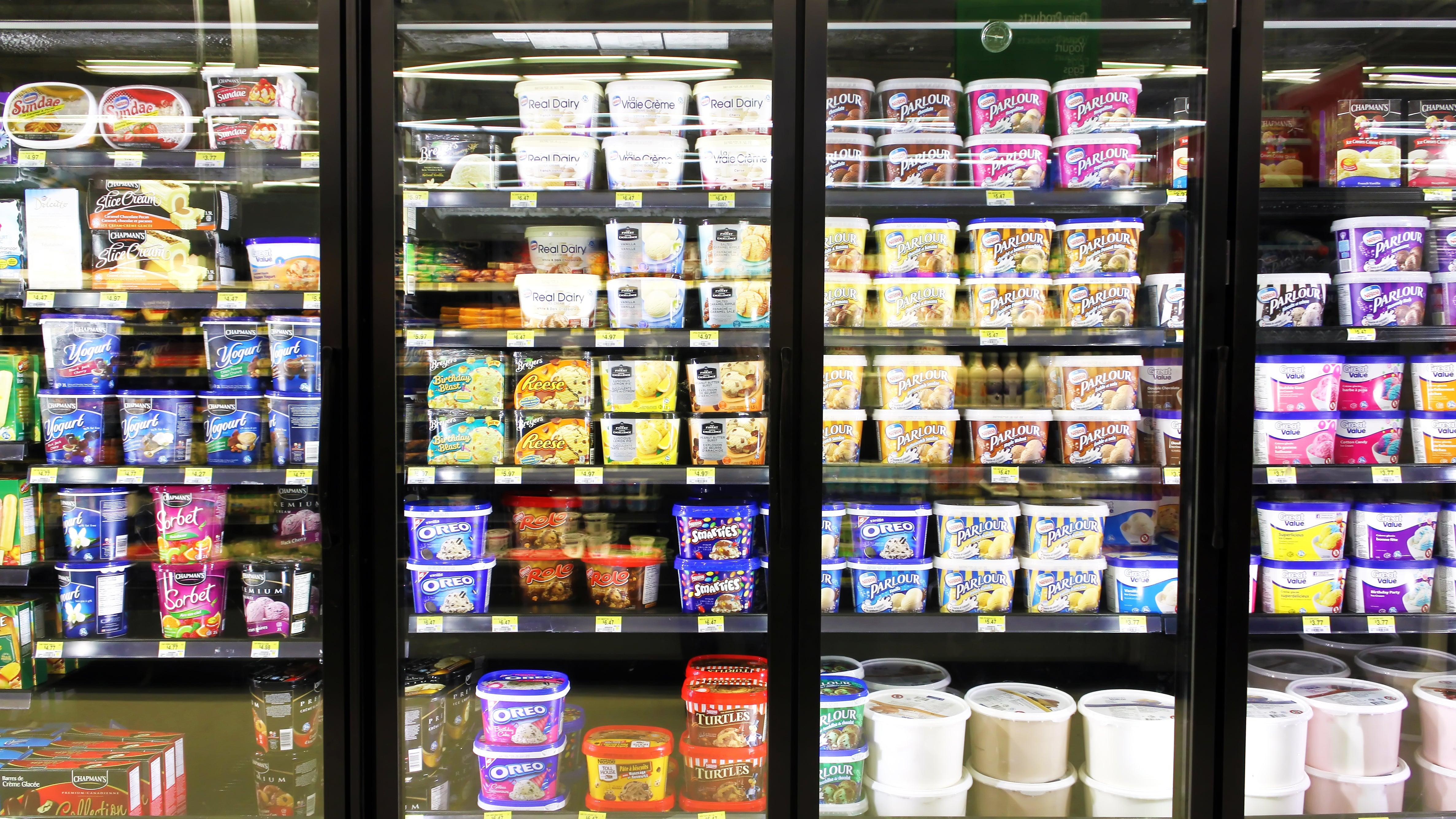The Ben & Jerry's Formula Might Be Changing
Unilever is trying to reformulate its ice cream products.
As you pull off the lid on a pint of Ben & Jerry's, ready to dig in, you probably don't think to yourself, "Thanks, Unilever!" Yet the decisions made by the conglomerates who own our favorite brands definitely influence what we eat and how we eat it. Thanks to a double whammy of climate change and economic forces, the world's largest food and beverage brands are rethinking just about everything, right down to the way we cool off during the summer with a good ol' ice cream bar.
How Unilever is using food science to save energy
Unilever, owner of Ben & Jerry's and Magnum ice cream bars, actually owns the majority of the three million freezer chest units that live inside convenience stores across the country, leasing them to the store owners. That adds up to a huge carbon footprint: The energy it takes to power all those freezers amounts to 10% of the greenhouse gas emissions connected to the corporation. (These are called value chain emissions, meaning the company is not emitting them itself but is indirectly responsible for them.)
To conserve energy, Unilever is looking at ways to tweak its operations. Its goal is to be able to run those chests at 10 degrees F as opposed to zero degrees, which will ideally cut the carbon footprint by a significant 20-30% per freezer, the Wall Street Journal reports.
There's an obvious concern to running these freezers at a slightly warmer temperature: Nobody wants runny ice cream. So the company is reformulating some of its frozen products to be able to tolerate slightly warmer temperatures without losing any of their signature mouthfeel. (As a hater of runny ice cream, I am intrigued.)
The most recent breakthroughs feature innovations in how the sugar is processed. A round of product testing will take place in Indonesia, where subjects will take part in blind taste tests and judge the sensory properties of different ice cream formulations.
How new ice cream will help businesses
If Unilever cracks the code on more warmth-resistant ice cream, it could have potential benefit for everyone, not just the massive corporation (and not just ice cream lovers, either).
Convenience store owners are plagued by the rising cost of energy, which caused some of them to unplug their seasonal ice cream freezers earlier than usual in 2022. Unilever is hoping that by cushioning the energy cost of running the freezers, operators will be incentivized to keep them on year-round, thus selling more product.
Fighting climate change is an industry-wide effort
It's worth remembering that convenience store owners don't exclusively stock Unilever products in their freezers. Unilever acknowledges that cranking the freezers up by 10 degrees may affect competitors' products as well, so if the company does make any breakthroughs in warmth-resistant ice cream, it allegedly plans to share some of that information with rival brands, which might encourage those competitors to pursue the same reformulations.
The current research project is slated to take up to 15 years to implement, however, since there are so many moving parts. If the company is successful in figuring out how to condition its ice cream to tolerate higher temperatures, it still has to manually change the temperature of all those freezers in around 60 countries, which will be quite a project in and of itself.
If a $130 billion corporation is concerned about protecting its products due to climate change, you know this is serious business. Who knew that pint of Phish Food you were thinking about picking up on the way home was cause for so much upheaval?
